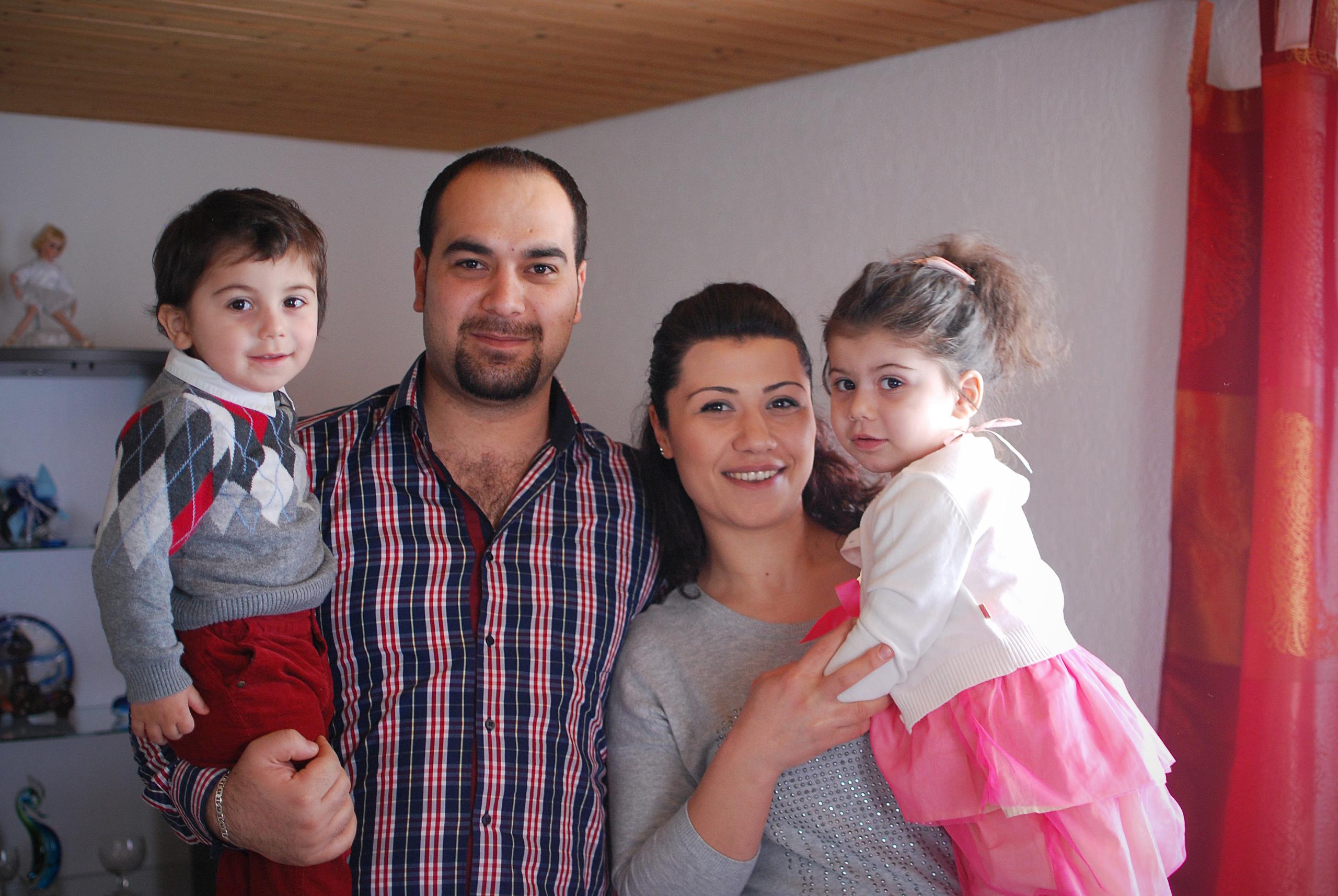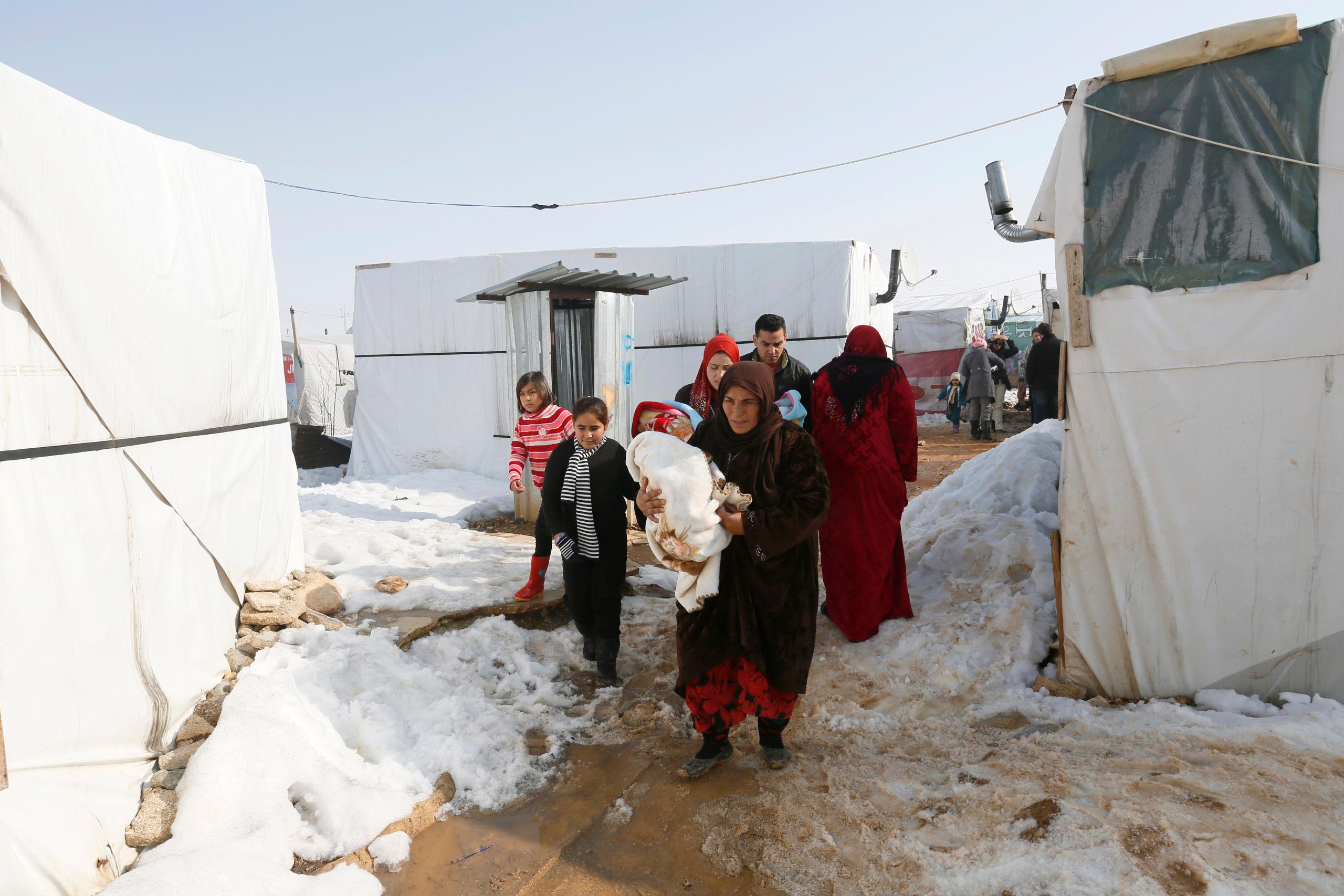Here, but facing an uncertain future

On a cold, winter evening, a large family gathers in an apartment in the centre of St Gallen. There are a dozen or so - uncles, aunts, cousins, mothers, fathers, and children - ranging from the very young to middle-aged.
A few years ago, they would have met up in bustling Damascus. Now they find themselves together in a foreign city thousands of kilometres away from home.
They are here thanks to Najwa Sayedah, who moved to Switzerland from Syria in the 1990s. In recent years, she has devoted great effort to bringing her family to Switzerland following the outbreak of civil war in their homeland. Her son serves as translator for the evening for his uncle Mohamed Al Sayedah and cousin Qamr Al Sayedah, who have been in Switzerland for a year, and his aunt, Amera Al Garhe, who arrived at the end of 2014.
Mohamed Al Sayedah’s immediate family is now scattered in Europe. His wife and three daughters are with him here in Switzerland, while his two sons are in Denmark. Sitting at the dining table in his sister’s house, he quietly describes life in Damascus during the war.
“Everyone is prepared to die at any moment,” says Al Sayedah, a thin and serious man.
His family left Syria by crossing the border with Lebanon. The trip, which usually takes two hours, lasted eight. They stayed in Lebanon for a month in a room rented by a relative, and flew to Switzerland in December 2013 after obtaining a visa.
“I imagined a beautiful land with friendly people” says Al Sayedah of his new home. Although relieved to be in Switzerland, he thinks about “the many people (in Syria) who are still there and are in danger”.

More
Starting over in Switzerland
His sister raised money from friends and put the family up in the convent in Wil for the first three months. The family then moved to an apartment in St Gallen.
Now Al Sayedah finds himself building his life once again at the age of 55. He attends German courses, goes for walks in the forest, and visits relatives. He hopes that in time he can work in Switzerland. In Syria he did painting and plaster work, he says, pointing to the ceiling work above.
His daughter Qamr attends language school. She is 18 years old, friendly and talkative, and wears a headscarf with her stylish winter parka. She’s made friends. Next year, she will start training in the trades and she would like to work as an interior decorator. Qamr still has good memories of Syria: the busy streets, her school and friends, the festival of Eid al-Fitr, she explains slowly in German. She would like to visit again one day when peace returns.
The family has an ‘F’ permit, giving them a provisional right to stay since they can’t be repatriated because of the war. Although their future is unclear, Al Sayedah and his daughter are focused on forging a new life in Switzerland.
“I have to live my life, regardless of what the situation may be,” Al Sayedah explains.
While he looks forward, Amera Al Garhe, 50, is still very much focused on her past life. Sorrow fills her dark eyes as she thinks of her two sons, daughter and grandchildren still in Syria. Another son is in Greece. Her thoughts are consumed by how to get them to safety. Sleep is difficult and she admits she cries often.
“My children live in great danger,” she says. “I feel safe here, but my heart is with my children.”
In the second half of 2014, she left Damascus and travelled three days to the Turkish border. She waited two-and-a-half months in Istanbul, then obtained a visa and flew to Switzerland. She lives with her brother and sister-in-law, Najwa. She recently obtained the ‘F’ Permit, and won’t give up hope that her children will one day join her in Switzerland.
“You always have to have hope about the future,” she says. “Hope creates miracles.”

In compliance with the JTI standards
More: SWI swissinfo.ch certified by the Journalism Trust Initiative









You can find an overview of ongoing debates with our journalists here . Please join us!
If you want to start a conversation about a topic raised in this article or want to report factual errors, email us at english@swissinfo.ch.